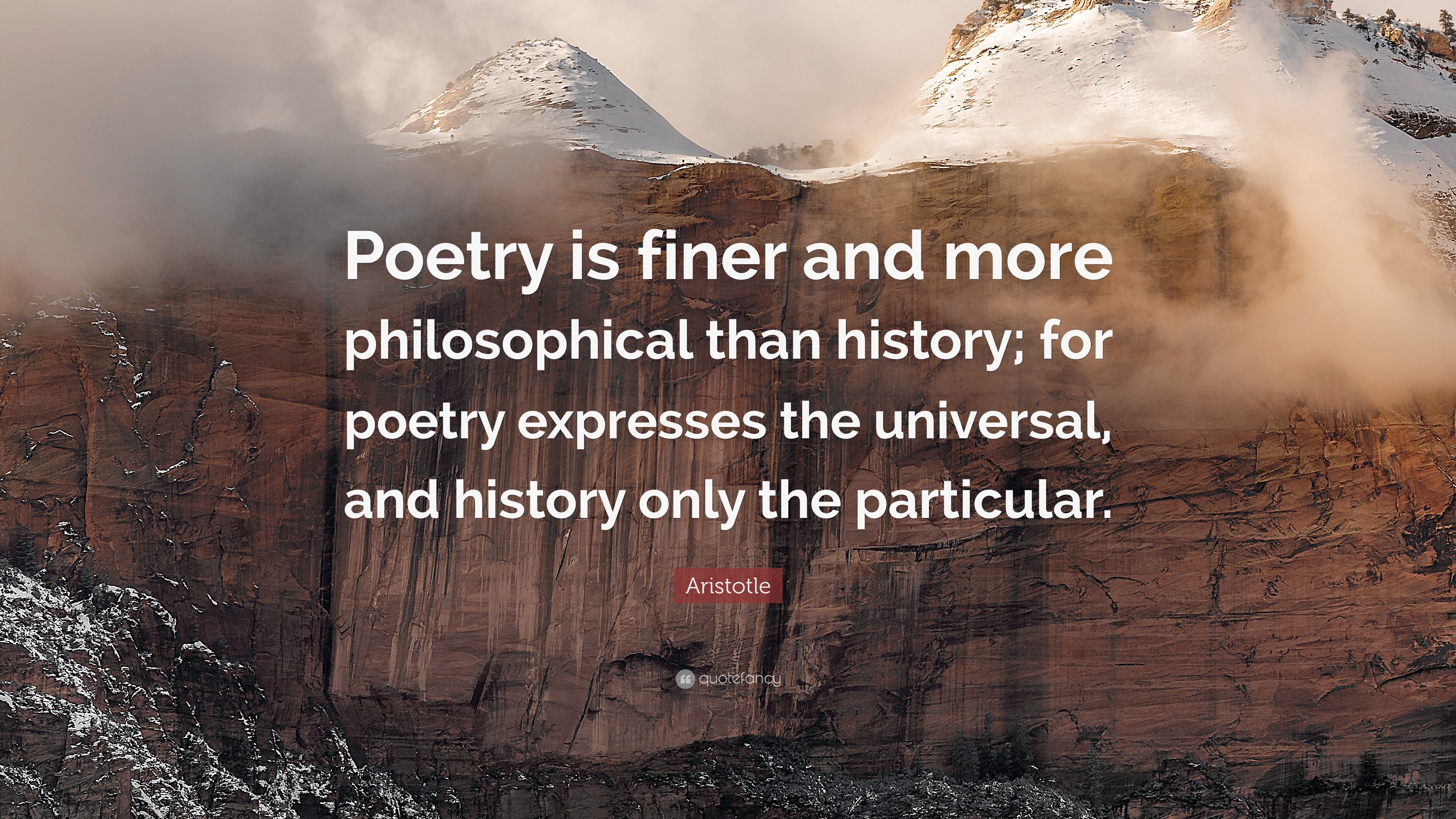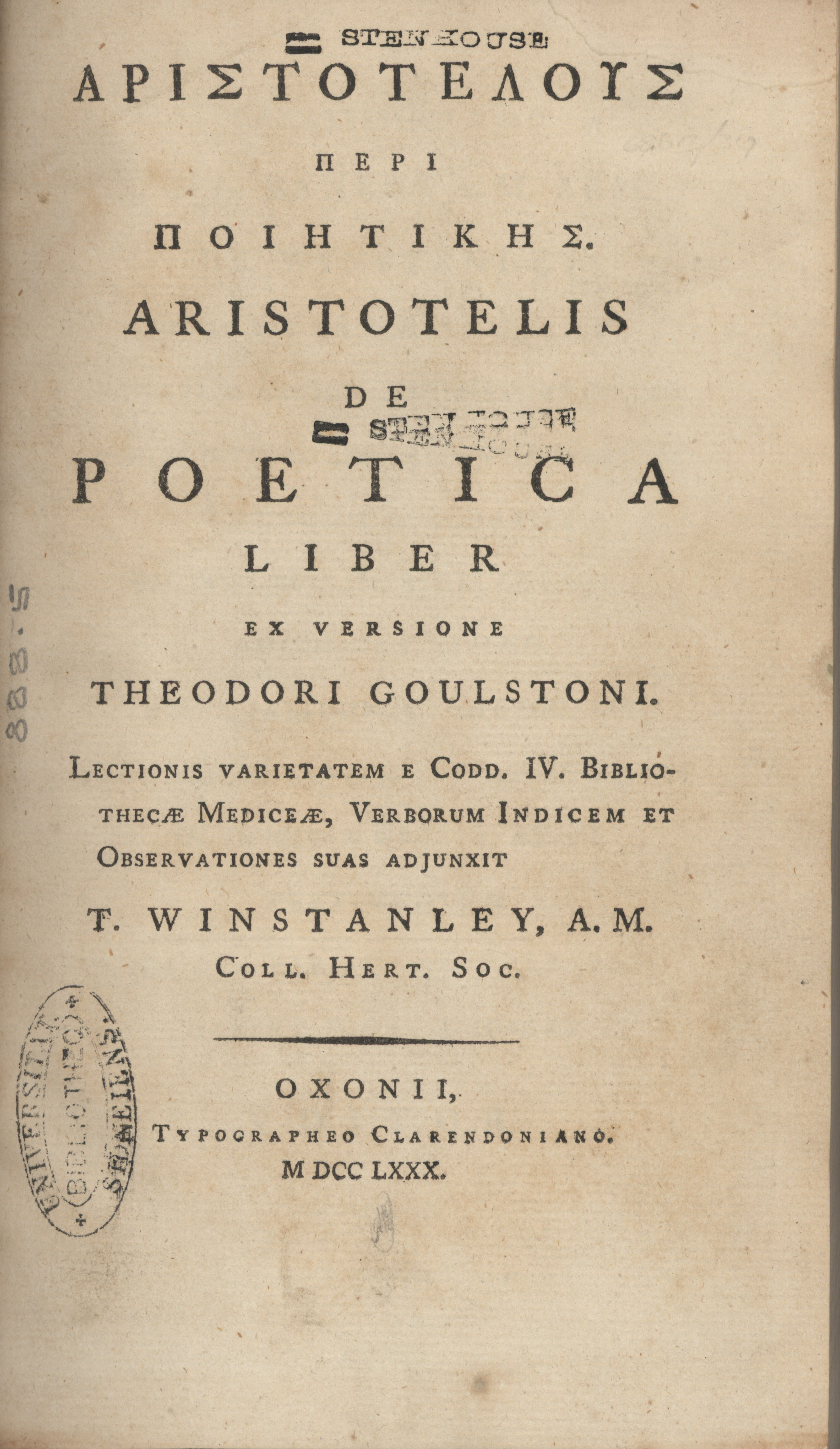

In detail, we aim at the question of how the poetics of audiovisual proposals of a commonly shared world relate to processes of political community-building. We used Richard Rorty’s concept of a permanent interlocking of self-description and acting in order to explore the possibilities and limits of a comprehension of politics that is necessarily attached to poiesis. Yet, how can we relate this to the fact that praxis or ‘acting’ is considered a central notion of the political while poiesis or ‘making’ usually is not?

Second are General Topics which offer detailed introductions to the main areas of Aristotle's philosophical activity.One of the results of our research focus Genre and Affect was that as soon as one views social reality not in a representational manner but in terms of economies of affect and communities of taste, poetological questions lead to a political dimension. First, the present, general entry offers a brief account of Aristotle's life and characterizes his central philosophical commitments, highlighting his most distinctive methods and most influential achievements.

The set of entries on Aristotle in this site addresses this situation by proceeding in three tiers. The long history of interpretation and appropriation of Aristotelian texts and themes-spanning over two millennia and comprising philosophers working within a variety of religious and secular traditions-has rendered even basic points of interpretation controversial. In all these areas, Aristotle's theories have provided illumination, met with resistance, sparked debate, and generally stimulated the sustained interest of an abiding readership.īecause of its wide range and its remoteness in time, Aristotle's philosophy defies easy encapsulation. His extant writings span a wide range of disciplines, from logic, metaphysics and philosophy of mind, through ethics, political theory, aesthetics and rhetoric, and into such primarily non-philosophical fields as empirical biology, where he excelled at detailed plant and animal observation and taxonomy. A prodigious researcher and writer, Aristotle left a great body of work, perhaps numbering as many as two-hundred treatises, from which approximately thirty-one survive. Judged solely in terms of his philosophical influence, only Plato is his peer: Aristotle's works shaped centuries of philosophy from Late Antiquity through the Renaissance, and even today continue to be studied with keen, non-antiquarian interest. Aristotle (384–322 B.C.) numbers among the greatest philosophers of all time.


 0 kommentar(er)
0 kommentar(er)
